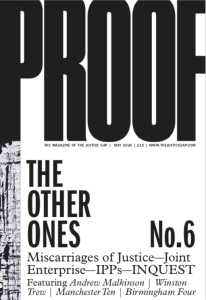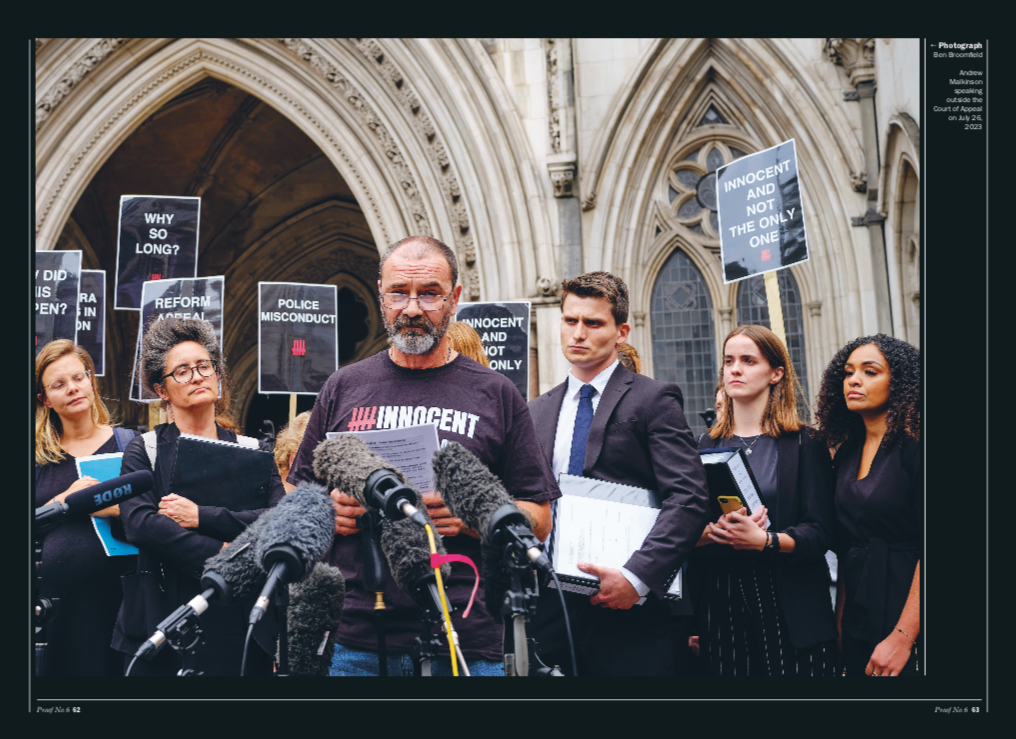The miscarriage of justice watchdog is considering reopening the cases of almost 5,500 people convicted of murder or rape whose applications the group had previously turned down. The Criminal Cases Review Commission (CCRC) is currently the subject of two separate reviews following the furore over of the quashing of the conviction of Andrew Malkinson and subsequent revelations about its failure to investigate the case – one instigated by the CCRC itself headed by Chris Henley KC and one launched by the justice secretary Alex Chalk and headed by judge Sara Munro KC.
 According to the CCRC, the new trawl could lead to ‘potentially several dozen’ cases being retested as a result of developments in DNA techniques. In 2012 and 2020, the watchdog rejected applications from Malkinson who spent over 17 years wrongly imprisoned for rape and was finally exonerated last summer. The Justice Gap reported that a 2013 internal report showed the CCRC failed to commission DNA tests which could have cleared Victor Nealon (whose case has featured widely in the Justice Gap) a decade sooner. That review also called for the CCRC to identify similar cases where DNA opportunities might have been missed.
According to the CCRC, the new trawl could lead to ‘potentially several dozen’ cases being retested as a result of developments in DNA techniques. In 2012 and 2020, the watchdog rejected applications from Malkinson who spent over 17 years wrongly imprisoned for rape and was finally exonerated last summer. The Justice Gap reported that a 2013 internal report showed the CCRC failed to commission DNA tests which could have cleared Victor Nealon (whose case has featured widely in the Justice Gap) a decade sooner. That review also called for the CCRC to identify similar cases where DNA opportunities might have been missed.
This evening there is the launch of a new issue of Justice Gap’s PROOF magazine in the House of Commons chaired by Barry Sheerman MP. The issue focuses on miscarriages of justice in the wake of the Andrew Malkinson and the Post Office Horizon scandals. It features an interview with Andrew Malkison by the Guardian’s Emily Dugan. In today’s Guardian, Malkinson’s solicitor Emily Bolton, at APPEAL, tells Dugan the CCRC’s announcement amounts to ‘a stunning admission that after missing DNA testing opportunities in Andrew Malkinson’s case, the CCRC may also have denied justice to hundreds of other innocent people’.
PROOF features a report on a CCRC roundtable event organised by the Future Justice Project comprising leading lawyers and academics who campaigned for or else worked for the CCRC in its early days. The event was chaired by the former CCRC commissioner David Jessel. Jessel presented both the BBC’s pioneering investigative programme Rough Justice and Channel Four’s Trial & Error before joining the commission for a decade in 2000.
‘What we need to do is find out whether Andrew Malkinson was an outlier,’ he said. ‘Mistakes happen, we all know that. That’s why we’re in the miscarriage of justice business – with the best will in the world, things slip through the net; but how much of what happened was the inevitable outcome of the system as it is now?’
The magazine features an analysis of CCRC referrals over the last eight years by the academic Stephen Heaton. ‘Referrals in relation to a conviction in the Crown Court are actually quite a small number. Quite rare one might say. I was also very surprised to see just how few have been successful.’
The CCRC now says it it is analysing closed cases involving murder or rape where the conviction was before the beginning of 2016 to ‘pinpoint those where advances in DNA technology could now help identify an offender’. According to the commission, DNA laboratories in the UK moved to using a technique called DNA-17 in July 2014 which is ‘arguably more sensitive than older types of DNA profiling’. ‘Old samples, degraded samples or samples which contain only a very small amount of cellular material are more likely to yield useful results using this testing method,’ the group says.
Of the more than 5,000 people convicted of murder or rape identified, the CCRC says that most ‘will not move into a second phase of the project because they are ones where the identity of the offender is not challenged, including cases in which someone convicted of murder argues the killing was in self-defence, or rape cases in which the person convicted argues that sex was consensual’.
According to the commission, initial work which the group says started in August last year (i.e., the month after Malkinson’s conviction was quashed) suggests that ‘about a quarter of cases’ will move to the second phase of the project with ‘potentially several dozen ultimately being subject to new testing’.
It is not certain that this project will result in any applications which have previously been turned down being referred to the Court of Appeal, and convictions potentially quashed.
‘The CCRC has been in operation for more than 27 years and scientific advances mean that there may be fresh forensic opportunities in cases that we last reviewed several years ago,’ a spokesperson said. ‘This trawl is a significant task and is the first undertaken by us on this scale. It could take considerable time, requiring us to have substantial additional resources so we can balance this important work with our existing case reviews.’ The group is calling on the Ministry of Justice for additional funding to complete its work.







